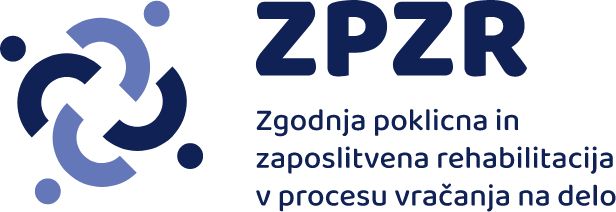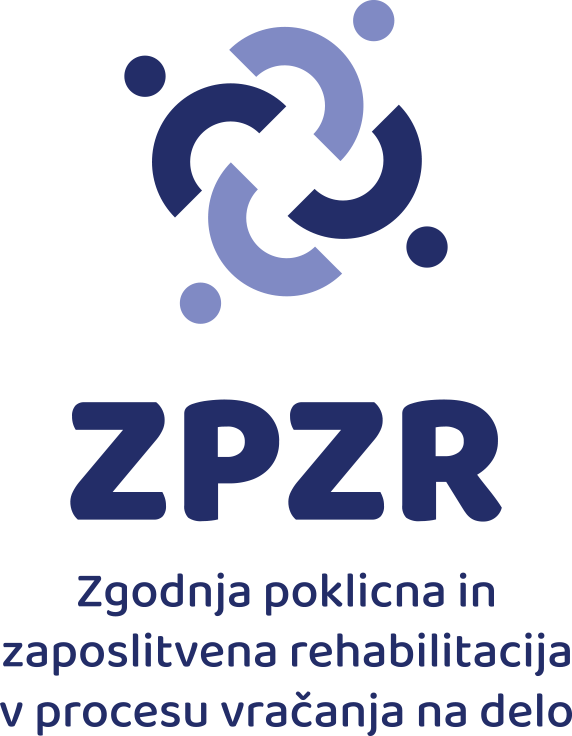Background
Employment analyses show that the position of (working) people with disabilities on the labour market is less favourable; disabled persons are less inclined to integrate themselves into the labour market, their unemployment rate is higher compared to the general unemployment rate, and their unemployment duration is longer compared to the rest of the population.
Based on the data published by the Employment Service of Slovenia, the unemployment rate in June 2020 was 9.2%. Data taken from August 2020 shows that approximately 15% of those unemployed were people with disabilities. Almot 85% of those that have been unemployed for more than a year are disabled.
The structure of the people with disabilities is an even bigger issue – approx. 65% of them are aged 50 or more and approx. 40% have elementary education. These are the categories of people who are at a disadvantage on the labour market.
To ensure and protect the employment of working people with disabilities, the Slovenian legislation offers them to assert their right to vocational rehabilitation. The Pension and Disability Insurance Act states that vocational rehabilitation is a comprehensive process in which the insured party is professionally, physically and psychosocially trained to perform another occupation or work so that they may gain employment and re-integrate themselves into the working environment or be trained to perform the same occupation and work by having their workplace adjusted with appropriate technical aids.
Research, however, shows the right is underutilised in practice as only 50% of eligible insured parties assert their rights. The Early Vocational Rehabilitation in the Return to Work Process project aims to determine the causes for the situation and seek solutions which will serve as the basis for further implementations of systemic changes in practice.
Project description
The activities of the Early Vocational Rehabilitation in the Return to Work Process project are focused on solving employment problems of those persons who, due to their illness or injury, are unable to perform their current work in the same way as they had before becoming disabled.
The results of the pilot implementation of the new vocational rehabilitation model will be used in the preparation of a new systemic vocational rehabilitation model and its implementation. Vocational rehabilitation is namely a key disability insurance right which allows working disabled persons to keep their employment or to improve their options on the labour market. The project results will thus help in the prevention of an early exit from the labour market, especially of persons who had been absent long-term due to illness or disability.
The project is managed by URI-Soča in cooperation with various stakeholders, e.g. the Ministry of Labour, Family, Social Affairs and Equal Opportunities, the Ministry of Health, the Pension and Disability Insurance Institute of Slovenia, the Health Insurance Institute of Slovenia, providers of vocational rehabilitation, occupational, traffic and sports medicine specialists, employers and insured parties. The project is co-financed by the Republic of Slovenia and the European Social Fund, European Union
Purpose
The purpose of the project is to reform the current model of vocational rehabilitation into a comprehensive early employment and vocational rehabilitation in the return to work process, with focus on promoting cooperation between all the participating stakeholders in the return to work process.
The comprehensive model is meant to improve the employability of persons who, due to illness or injury, are unable to perform their current work in the same way they had before becoming disabled and are thus threatened with the loss of their job.
Goals
The project shall pursue five main goals:
- identified causes for the poor assertion of rights to vocational rehabilitation in practice in order to adjust the system in such a way that vocational rehabilitation will become the core disability insurance right in practice as well
- performance analysis of the vocational rehabilitation institute on the organisational level
Project Management
Project manager on behalf of URI Soča – Metka Teržan, MD, occupational, traffic and sports medicine specialist
The control over the performance of the project activities is entrusted upon the project council, which also carries out guiding activities.
It is composed of the following representatives:
A development group has been established to support the project, which includes professionals in various areas, e.g. medical doctors, occupational, traffic and sports medicine specialists, family doctors, social workers, vocational rehabilitation providers and representatives of institutions represented in the project council.
LOCATION:
URI – Soča, Center za poklicno rehabilitacijo
Linhartova 51, 1000 Ljubljana







